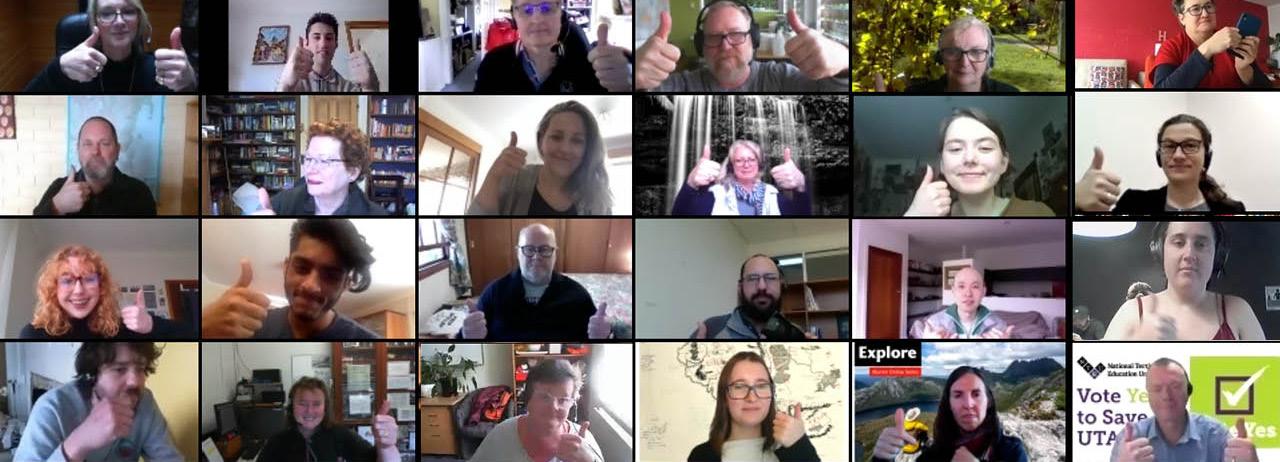Alison Barnes, National President Welcome to the 2020 NTEU Annual Report. This has been a year like no other for our sector and our Union.
Alison Barnes National President
At the time of writing 12,500 of our workmates, who should be teaching our students, developing theory and innovation or running the administrative functions of our universities, are standing in unemployment lines across the country. What’s more, 12,695 is a gross underestimate of the real numbers of staff across our sector who have lost work. It does not capture those working for private education providers who bore the first wave of COVID-related job losses nor the many thousands of casuals who have silently been let go. A number cannot begin to capture the human cost of unemployment: the financial and emotional strain unemployed workers endure. It doesn’t capture the story of people like Dash, employed for years on rolling contracts at a private provider but who is now permanently leaving the sector; nor members of our National Tertiary Casuals Committee (NTCC) who haven’t worked for months; nor Ali, a professional staff member at Macquarie, who is applying for a VR as her workload spirals beyond breaking point. These job losses impact not only individuals but also undermine the ability of our universities to contribute to the economic reconstruction of Australia.
Image (this page): 2020 International Women’s Day march, Melbourne.
6
That said, the value of higher education to our society should never be measured by economics alone; the contribution of universities to the rich fabric of our society must not be discounted. We are witnessing
increasing job losses among researchers employed on rolling contracts, undermining our nation’s intellectual capacity at the very moment we need to confront not only recession but the devastating impacts of climate change and global uncertainty. COVID-19 has taken a heavy toll across our sector but, as our Blue Stocking Week demonstrated, it is women who have been particularly affected. Two-thirds of redundancies have been borne by professional and general staff, 64 per cent of whom are women. Moreover, evidence is emerging that the publications output by women has suffered as a result of the double burden of managing work and life in lockdown. The longer-term impacts will be to make it harder for women to gain promotion and widen the gender pay gap. The Federal Government, rather than valuing the contribution of our universities, has refused to throw the sector a life-line, thus undermining the sector’s ability to perform its core functions of teaching and research. The Government has stood by as job losses swept our sector and, on three occasions, has denied our colleagues access to JobKeeper, thereby effectively severing the relationship between staff and their institutions. The recent passage of the Higher Education Support Amendment Bill reshapes the architecture of the sector in a way that not only sees students pay higher fees but also provides staff with fewer resources. Yet again, the Government has attempted to reignite the culture wars.
NTEU ANNUAL REPORT 2020 ◆ Alison Barnes, National President



















